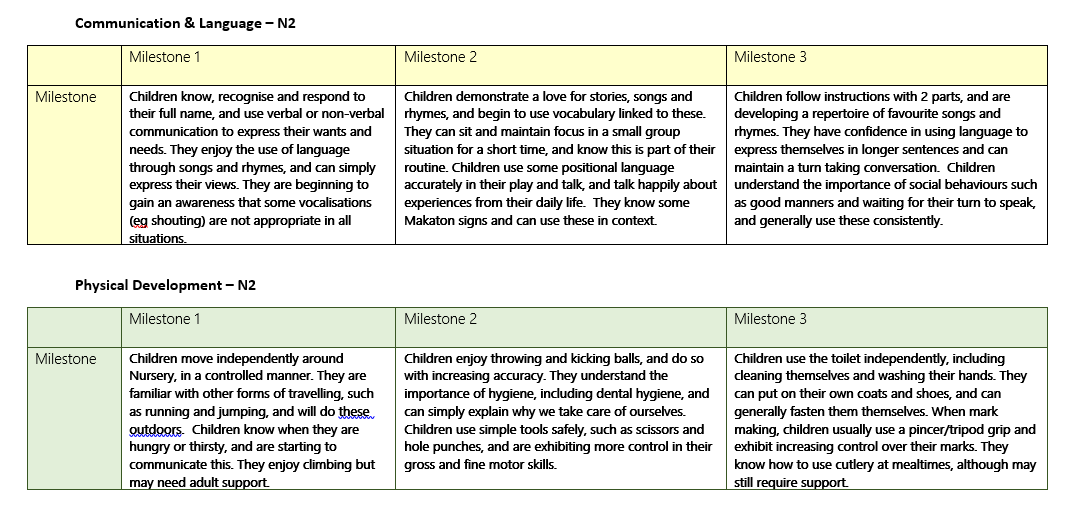This is a statutory curriculum for children age 0 to 5 years, which has been revised from September 2021. It emphasises that from when a child is born, until the age of 5, their early years’ experience should be happy, active, exciting, fun and secure; and should support their development care and learning needs. All nurseries, pre-schools, reception classes and childminders must follow a legal document called the Early Years Foundation Stage framework.
Leadership, staff, local primary schools and our community have all fed their ideas and expectations into our school curriculum. Our curriculum document can be viewed on our Policies & Documents page or via the link at the bottom of this section.
Our curriculum document is set out in 3 key sections, to detail our Intent (what we want children to learn, Implementation (how we teach what we went them to learn) and Impact (how we know and measure what they have learned).
YOU CAN VIEW OUR FULL CURRICULUM DOCUMENT HERE, or look at some of the extracts below.
Key milestones we plan for 3-4 year old children to reach before they start Reception are:




Key milestones we plan for 2-3 year old children to reach before they start their standard nursery year are:




There is also guidance for the professionals supporting your child on planning the learning activities, and observing and assessing what and how your child is learning and developing.
The EYFS Framework explains how and what your child will be learning to support their healthy development. Your child will be learning skills, acquiring new knowledge and demonstrating their understanding through 7 areas of learning and development.
These are:
These prime areas are those most essential for your child’s healthy development and future learning. As children grow, the prime areas will help them to develop skills in 4 specific areas.
These are:
These 7 areas are used to plan your child’s learning and activities. The professionals teaching and supporting your child will make sure that the activities are suited to your child’s unique needs. The EYFS is suitable for very young children, and it’s designed to be really flexible so that staff can follow your child’s unique needs and interests. Children in the EYFS learn by playing and exploring, being active, and through creative and critical thinking which takes place both indoors and outside.
We regularly observe children and assess their learning. This information is then used to plan the child’s next steps for learning and allows us to tailor our provision to their interests. Your children will often bring home their creations as they want you to be as proud as they are! Parents are invited to talk about their child's progress regularly throughout the year and can also keep up to date with what they have been up to via Tapestry. We encourage parents to upload their own Tapestry observations to show what they have been up to at home and give a fuller picture of their child's experiences.
lk